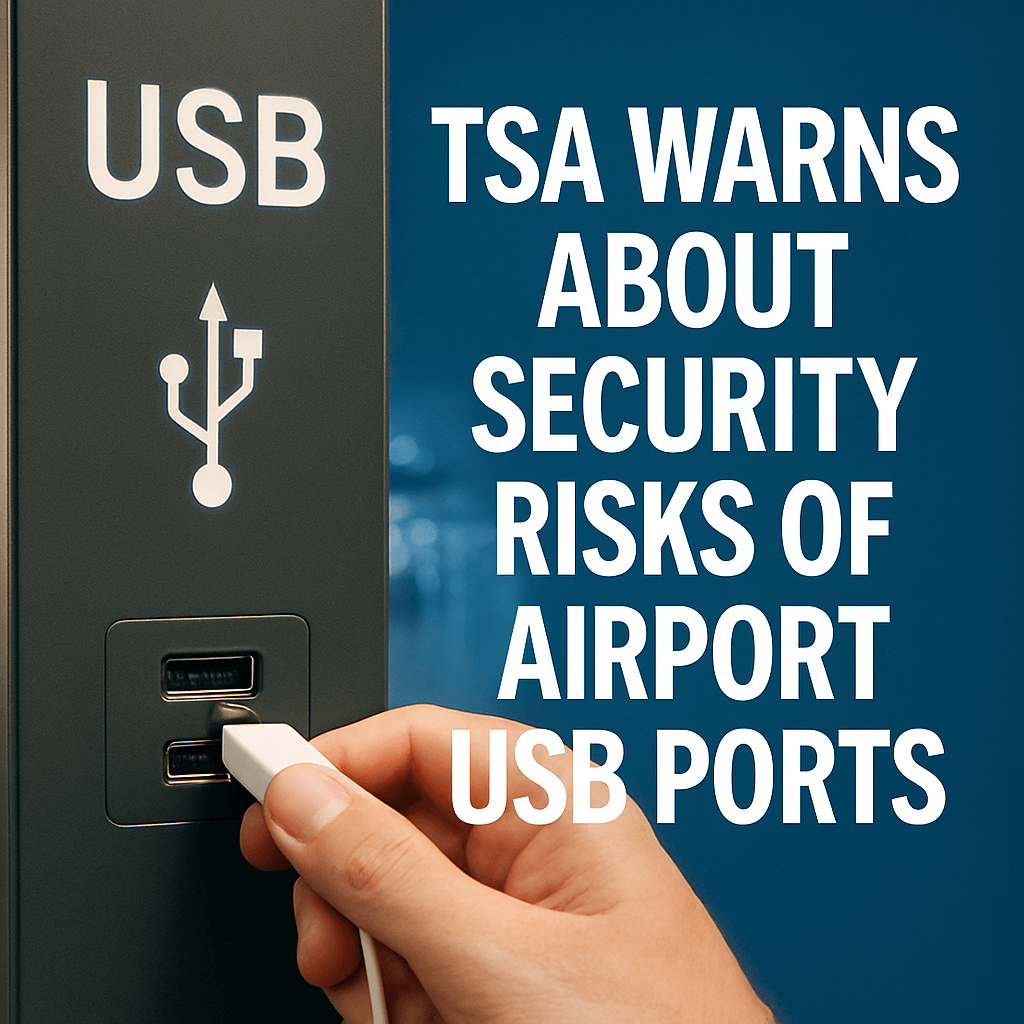TSA Warns About Security Risks of Airport USB Ports

The Transportation Security Administration (TSA) is cautioning travelers against the use of USB charging ports located at airports, emphasizing the potential cybersecurity threats posed to devices. This advisory highlights the risk of malware infections that could occur when connecting devices to these public charging stations.
The Perils of Airport USB Charging
As travel resumes and airports become bustling hubs once again, passengers often find themselves needing to recharge their devices. The convenience of USB ports at various terminals may seem appealing; however, they can pose significant security risks.
The TSA specifically warned about a technique known as “juice jacking”, where cybercriminals can manipulate public USB ports to install malware or harvest personal data from devices that are connected. According to the TSA’s guidance, “Hackers can install malware at USB ports. So, when you’re at an airport, do not plug your phone directly into a USB port. Bring your TSA-compliant power brick or battery pack and plug in there.” This advice reinforces previous warnings issued by the FBI and FCC, which have raised concerns about the safety of public charging stations.
Understanding Juice Jacking
Juice jacking occurs when a public USB port is compromised, allowing malicious software to be installed on a device when a user connects their phone or tablet. Unlike traditional charging methods that only draw power, USB connections can transfer data. Experts note that this dual capability makes public charging stations particularly vulnerable to exploitation.
- Device Vulnerabilities: Many devices default to data transfer mode when connected to a USB port, which can be exploited.
- Malware Installation: Once malware is installed, it can perform various functions, such as stealing personal information, tracking locations, or even hijacking functions of the device.
Public Wi-Fi: Another Security Concern
In addition to warnings about USB ports, the TSA has also cautioned travelers against using public Wi-Fi networks. The unsecure nature of these connections makes it easy for attackers to access sensitive information, particularly if confidential transactions are conducted over such networks.
Experts recommend taking the following precautions when connecting to public Wi-Fi:
- Use a VPN: A Virtual Private Network (VPN) encrypts your internet connection, providing an extra layer of security while using public networks.
- Limit Sensitive Transactions: Avoid logging into bank accounts or making purchases while using unsecured Wi-Fi.
- Turn Off Sharing: Disable file sharing settings on your device to reduce vulnerability.
The Role of Biometric Technology and Privacy Considerations
The TSA’s admonitions come amid broader discussions about technology and surveillance within airports. The agency has recently increased its utilization of facial recognition technology at security checkpoints. While aimed at enhancing efficiency and security, civil rights advocates have voiced concerns regarding privacy and data retention.
In a letter addressed to the TSA, a group of five senators expressed their apprehension, stating, “Increasing biometric surveillance of Americans by the government represents a risk to civil liberties and privacy rights.”
Despite these concerns, the TSA has asserted that it is not currently storing biometric data collected through these processes.
Conclusion: The Importance of Cyber Hygiene
Travelers should be vigilant about their cybersecurity practices in airports. With increasing reliance on technology and a surge in connectivity, awareness about potential risks is crucial. The TSA’s recommendations serve as a reminder to prioritize device safety by avoiding public USB ports and Wi-Fi networks when possible. By being proactive, travelers can better protect themselves from the evolving threats of cybercrime.